Who, when and how? Councillors want answers on developer donations to wards
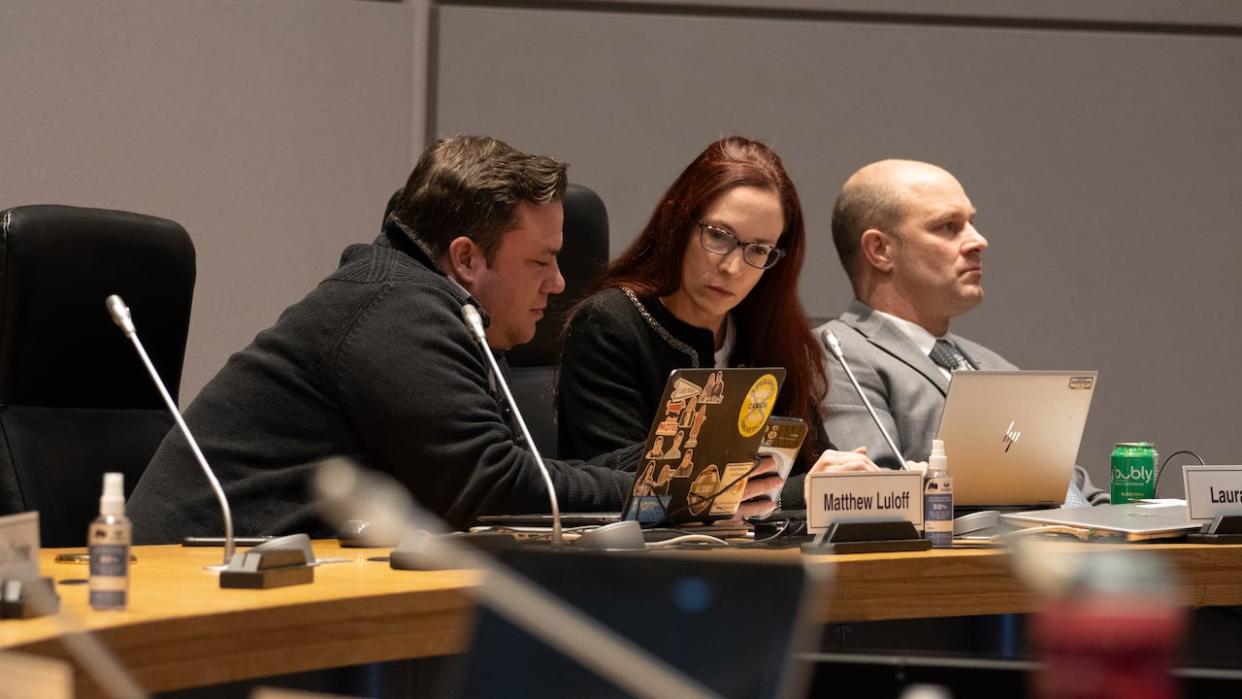
Some are in favour of developers being able to donate to wards. Others are staunchly against. Ottawa city councillors do agree there need to be clear rules on how these negotiations work.
A $300,000 donation from Groupe Katasa for traffic calming and affordable housing in Capital ward is no longer, but the debate it sparked is still causing ripples around the council table.
Council directed staff to formulate a policy, although Mayor Mark Sutcliffe said he believes the city doesn't need one since it should "discontinue" the practice going forward.
"I disagree with the mayor," said Somerset Coun. Ariel Troster, who points out that most councillors said they want guidelines.
"To then turn around and say we don't need a policy because we just shouldn't do this anymore, to me, is contravening a vote that we took at council just last week."
Some reconsidering their votes
Kanata North Coun. Cathy Curry, though, said it's understandable the mayor is shifting his view because new information on how the agreement was negotiated is coming to light.
Curry brought forward a "compromise" motion at last week's meeting which changed the Capital ward agreement to give staff discretion to use the $300,000 in any ward.
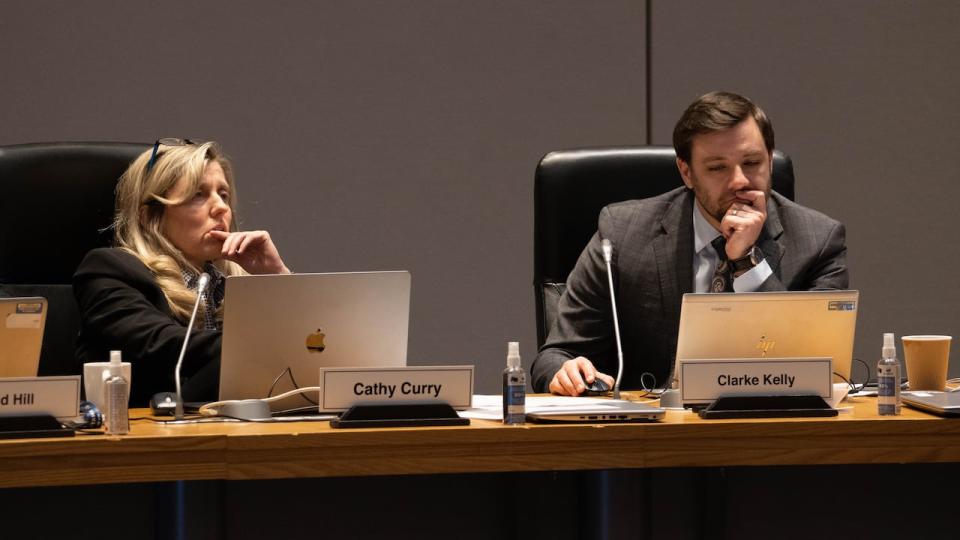
Kanata North Coun. Cathy Curry, left, during the Jan. 24, 2024 meeting. Curry said she the statement from Groupe Katasa withdrawing its proposed donation was concerning. (Jean Delisle/CBC)
It's a move she suspected might cause Groupe Katasa to withdraw its offer, but she said new information in the developer's Monday statement "fascinated" her.
It mentioned an unnamed city official who Katasa said made it seem this was a "typical" part of the process.
"That is not something that I want any developer, anyone to think … that there are these little side deals," Curry said.
A spokesperson for Katasa could not confirm whether the city official was part of the planning department or a member of Capital Coun. Shawn Menard's team.
Curry said she hopes the policy will be clear, perhaps saying future memorandums of understanding are produced by staff.
She also said some of her colleagues are considering whether council should "reconsider" her motion as they receive more information on who led these negotiations and when the discussions took place.
The more specific, the better
Alta Vista Coun. Marty Carr, who drafted the motion requesting a new policy, said some questions need to be answered.
"What constitutes a voluntary donation? Who can ask for it?" she said. "In what situations are those appropriate?"
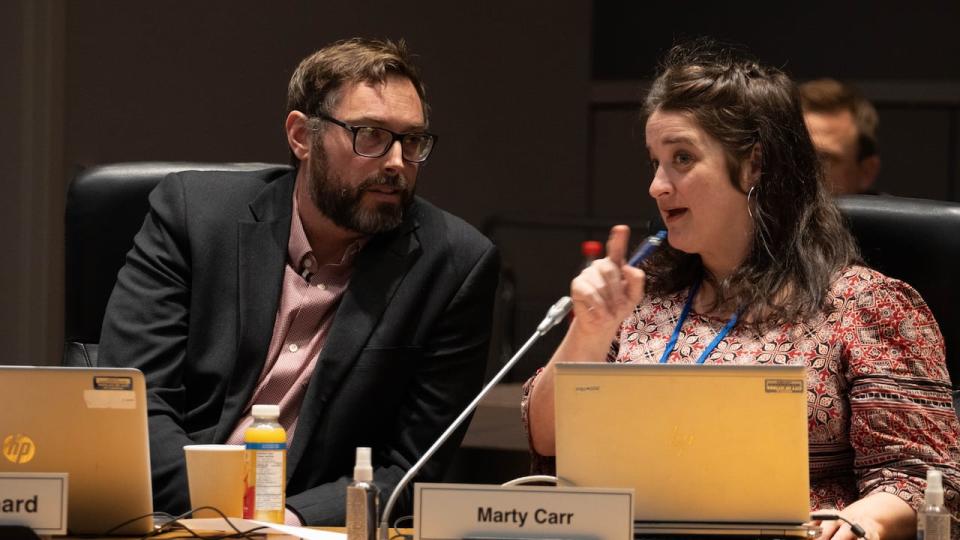
Capital Coun. Shawn Menard and Alta Vista Coun. Marty Carr confer during a council debate on a voluntary donation from Groupe Katasa on Jan. 24, 2024. (Jean Delisle/CBC)
Carr said these agreements are an important way to limit the negative effects of a development, but said it's important to work with staff, the developer and residents to ensure they are precise and leave no question about transparency.
That resonates with Orléans West-Innes Coun. Laura Dudas, who said she was "uncomfortable" with the agreement at the time of the vote and is now "even more so."
She said there are a "myriad of factors" that sparked her concern, including where the funding would be dispersed.
Having funding go to a general pot of affordable housing funds is "wildly different" from providing help directly to residents that are at risk of being displaced, Dudas said — as was done in the Heron Gate case.
Addresses impact of gentrification
Troster has not negotiated one of these agreements since she came to office in 2022, but said her predecessor did.
The issue is an important one to her downtown ward, she argued, because residents suffer through the noise and dirt of construction along with the increased rent that accompanies gentrification.
"I personally don't think there's anything ethically or morally suspicious with negotiating additional benefit agreements," she said.
She also wants staff to explore the impacts of recent provincial legislation on the practice.
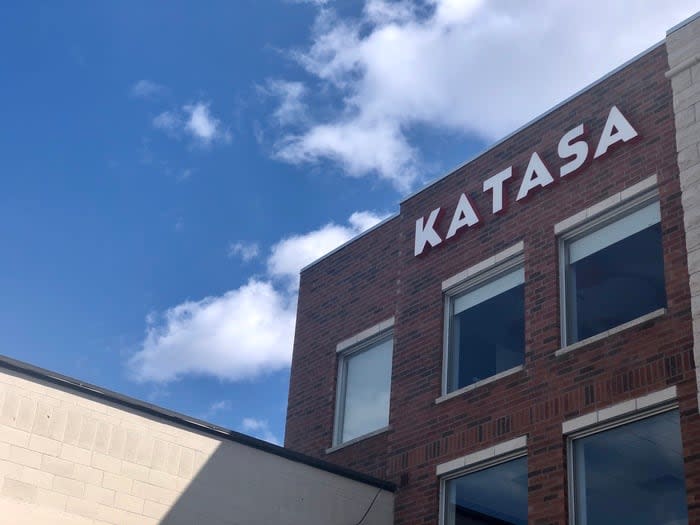
Groupe Katasa said in a statement that it was under the impression that voluntary donations are a typical part of the development process in Ottawa, but has since learned otherwise. (Yasmine Mehdi/Radio-Canada)
Barrhaven West Coun. David Hill also wants answers.
The suburban councillor tried unsuccessfully to defer debate on the issue and said he remains concerned that these kinds of agreements could lead to "camouflage NIMBYism."
The term encapsulates his fears that residents will try to leverage behind-the-scenes negotiations to delay or disrupt planned developments at a time when the city otherwise wants to cut red tape and build homes.
He wants to hear from staff before writing off the practice altogether.
"I would like to see what that policy could look like," he said, "and maybe the policy will say that this is just a downright bad idea and we shouldn't do it at all. In which case, I wouldn't be offended."
Councillors need to know 'their lane'
While integrity commissioner Karen Shepherd has already said these agreements are a "policy matter," councillors are open to the possibility of a further investigation — provided she opts to open one.
Curry and others said they are still unclear on the integrity commissioner's role in these cases.
"If this is the integrity commissioner's role, I would like her to find out what actually happened, to give the councillor in question a chance to explain, to actually look at how it went, so that we all learn from this," Curry said.
"Councillors need to be clear what their lane is and stay in their lane."
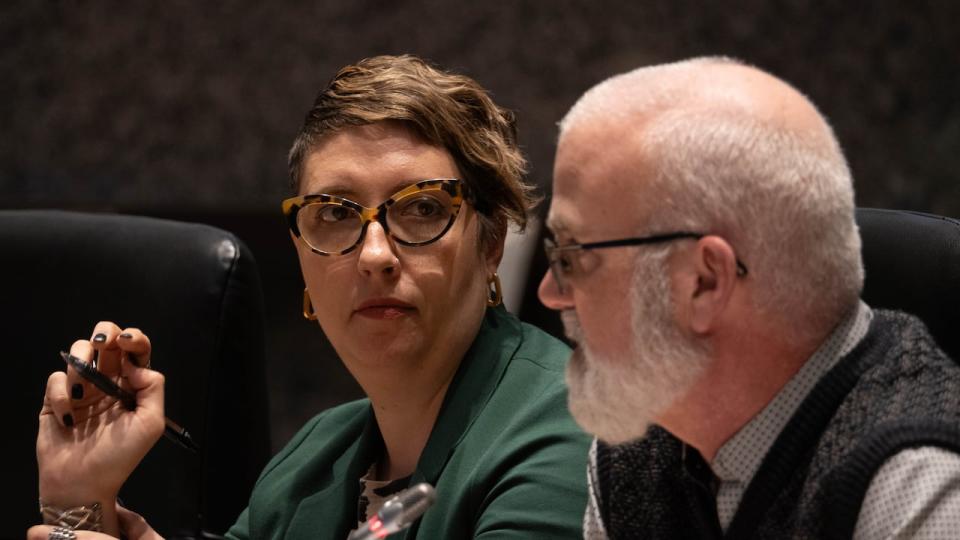
Somerset Coun. Ariel Troster, left, talks to Kitchisippi Coun. Jeff Leiper. She said there is nothing 'ethically or morally suspicious' about negotiating these agreements. (Jean Delisle/CBC)
Troster, however, found the suggestion of a further investigation "entirely unfair."
She went on to say some councillors are "making political hay" out of this issue at the expense of the community.
Troster added that if her colleagues are concerned with donations to certain wards from developers, they should take a similar ethical stand when it comes to accepting developer donations to their campaigns next election.


